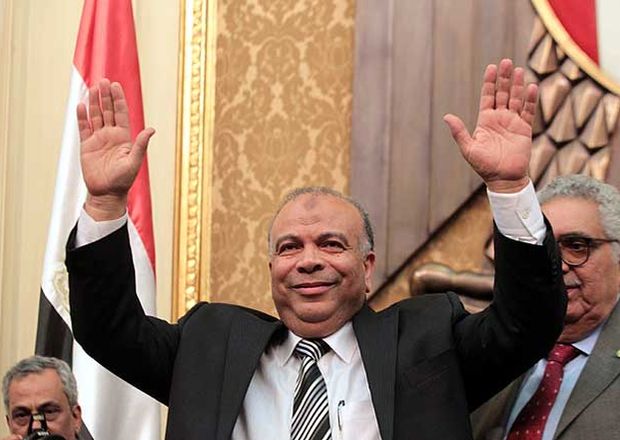Mere days after a fiery public declara- tion that the People’s Assembly would not accept its unconstitutional dissolution, former parliamentary speaker Saad Al-Katatni is alleged to have had two meetings with the Supreme Council of Armed Forces (SCAF) in the space of 24 hours.
Al-Katatni, who was imprisoned along with other prominent Muslim Brotherhood (MB) figures only a little over a year ago, was elected by an over that informed sources with the Freedom and Justice Party (FJP) had revealed that Al-Katatni had met with prominent members of the SCAF. The meeting is said to have lasted three hours and ended without both parties reaching a satisfactory agreement. Al-Katatni, the sources say, was attempting to have the new President take his oath in front of the Shura Council, since it was the only democratically elected body in Egypt.
The sources also said the SCAF tried to persuade Al-Katatni to cease calling for meeting of the dissolved People’s Assembly. Al-Katatni’s last call for a meeting was answered by only two former MPs, Anwar Al-Balkimy and Mohamed Al-Omda, who were both barred from entering the building. The MB staunchly denies any claims that Al-Katatni met with the SCAF. “These allegations are completely untrue,” said Essam El-Erian,Vice President of the FJP. “There was no meeting with the SCAF. Al-Katatni was with us the whole day and retired straight home afterwards.” Both the MB and the FJP have painted themselves as bitter enemies to the SCAF, vocally rejecting their dissolution of parliament as well as the constitutional amendments SCAF announced Sunday that severely hampered presidential authority, possibly in response to the mounting popularity of Brotherhood presidential candidate Mohamed Morsi.
An attempt to negotiate with SCAF through Al-Katatni could conceivably be viewed as a betrayal of their revolutionary ideals and could harm their reputation. Unlike its counterparts abroad, the Egyptian incarnation of the Muslim Brotherhood is far more comfortable with grassroot initiatives and detailed planning than outright violence, perhaps explaining its explosive popularity. It relies heavily on its public image as an alternative to the return of the old regime, so fraternizing with the last vestiges of it, the SCAF, would stand at odds with their almost daily calls for million man marches, known as millioneyat, protesting the actions of the military council.

